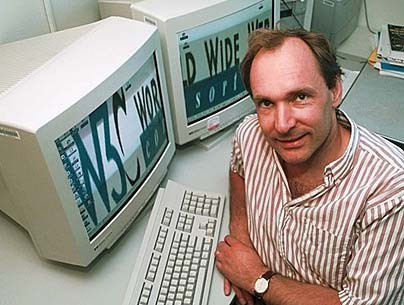Web Pioneer Tim Berners-Lee Warns of Government Bid to Control Internet 'On the Sly'

Sir Tim Berners-Lee, the inventor of the World Wide Web, has warned that the internet is facing a major threat from governments and companies who are seeking to "control it on the sly".
Berners-Lee said the internet's founding principles of openness and freedom of speech were at risk of being lost due to laws such as the US Stop Online Piracy Act (Sopa), government surveillance and attempts by internet giants to profit from individuals' private data.
"Unwarranted government surveillance is an intrusion on basic human rights that threatens the very foundations of a democratic society," said Berners-Lee.
"I call on all web users to demand better legal protection and due process safeguards for the privacy of their online communications, including their right to be informed when someone requests or stores their data.
"Over the last two decades, the web has become an integral part of our lives. A trace of our use of it can reveal very intimate personal things.
"A store of this information about each person is a huge liability: Whom would you trust to decide when to access it, or even to keep it secure?"
He added: "If you can control it, if you can start tweaking what people say, or intercepting communications, it's very, very powerful. It's the sort of power that if you give it to a corrupt government, you give them the ability to stay in power forever."
Berners-Lee was speaking in the wake of revelations that the US government has collected vast amounts of personal information from records held by Google, Facebook, Apple and other companies.
British spies also stand accused of gathering intelligence from internet giants "through a covertly run operation set up by America's top spy agency", said Berners-Lee.
He pointed to attempts by ousted Egyptian President Hosni Mubarak to cut off internet communications services during the uprising that toppled him in 2011.
"A lot of people thought the internet was like the air, it just flows. People asked, 'who could turn off my internet?'" he said.
The threat posed by companies and governments trying to take control of the internet was "a much bigger threat to its development than fears over any one company having an online monopoly", said Berners-Lee.
"If you remember Netscape, people thought, oh the web is great but here's a completely controlling web company. What are we going to do?" he said.
"Then one morning they weren't worried about Netscape any more, it was Microsoft. Then suddenly, wait a moment, the browser wasn't the issue, it was the search engine. Then it's - wait a moment -, it's the social network.
"If you look at it broadly, yes a monopoly slows innovation, reduces competition. That's why it's important this is an open platform. Monopolies come and go all the time."
Berners-Lee was speaking in Monte Carlo at the Ernst & Young World Entrepreneur of the Year competition.
As an employee of CERN, the European Organisation for Nuclear Research, Berners-Lee drew attention in 1989 to "the problems of loss of information about complex evolving systems". He proposed "a solution based on a distributed hypertext system" which was to lead to the creation of the World Wide Web.
© Copyright IBTimes 2025. All rights reserved.





















